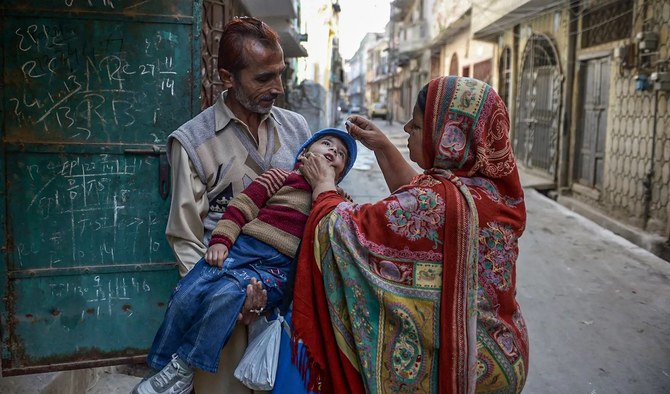ISLAMABAD: Pakistani health authorities identified traces of poliovirus in environmental samples collected from the country's eastern Rawalpindi city, a statement from the National Institute of Health (NIH) confirmed on Wednesday, noting that the isolated virus bore a genetic resemblance to a cluster currently circulating in Afghanistan's Nangarhar province.
Pakistan and Afghanistan are the only two countries worldwide where polio remains a looming threat to the health and well-being of children. The disease, which targets the nervous system and often leads to paralysis, continues to be a critical concern for the two countries.
Part of the reason why polio remains endemic in Pakistan is due to the prevailing sentiment in conservative segments of its tribal areas where polio vaccination campaigns are perceived as part of a Western agenda aimed at limiting the country's population. Attacks on polio volunteers and security personnel who guard them are common in Pakistan, especially after the Taliban imposed a ban on vaccination in the country's western tribal areas in 2012.
“The virus was found in an environmental sample collected from the Safdarabad site on August 10, according to the Pakistan Polio Laboratory at the National Institute of Health, which is also the WHO Regional Reference Laboratory for the polio program," the NIH statement read.
It added that the recently discovered sample was the second positive one collected from Rawalpindi this year.
Interim federal health minister, Dr. Nadeem Jan, voiced deep concern over the presence of the poliovirus in the environment, highlighting the danger it poses to children's well-being. He emphasized safeguarding children against the debilitating effects of the disease through timely vaccination.
“Parents and caregivers must ensure that their children receive multiple doses of the vaccine to ensure lifelong disability,” the statement quoted Dr. Jan as saying.
Pakistan organized a polio eradication campaign in 65 districts of the country this month from August 7 to 13 to vaccinate over eight million children under the age of five.
The South Asian country has registered two polio cases and identified 16 positive environmental samples so far this year. Afghanistan, on the other hand, has reported five cases and detected 33 positive samples during the same timeframe.




















